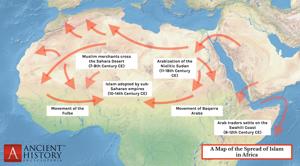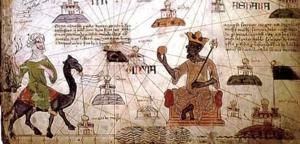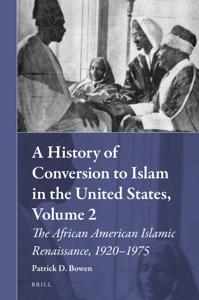
The question of whether Africans were forced to convert to Islam is a complex issue that encompasses centuries of history, cultural interactions, and socio-political dynamics. The spread of Islam across the African continent occurred through various means, including trade, military conquest, and cultural exchange.
This examination seeks to explore the nuances of African conversion to Islam, focusing on the motivations behind it and the extent to which coercion played a role.
Historical Context: The Spread of Islam in Africa
Islam began its expansion into Africa shortly after the death of the Prophet Muhammad in 632 CE. The initial spread occurred through military conquests by Arab armies, particularly in North Africa. By the 7th century, regions such as Egypt and the Maghreb were brought under Islamic rule.

However, the spread of Islam into sub-Saharan Africa took a different trajectory, primarily facilitated by trade routes and cultural exchanges.
Key Routes of Spread:
- Trans-Saharan Trade: Muslim traders from North Africa traversed the Sahara Desert, establishing trade networks that connected them with sub-Saharan kingdoms. These interactions often included the exchange of goods, ideas, and religious beliefs.
- Coastal Trade Routes: Along the East African coast, Arab traders settled and established relationships with local populations. This led to the gradual acceptance of Islam among coastal communities.
- Military Campaigns: While much of the conversion process was peaceful, there were instances where military campaigns played a role in spreading Islam, particularly in regions like Nubia and parts of West Africa.
Reasons for Conversion
- Economic Incentives: One of the most significant factors driving conversion was economic opportunity. Muslims often enjoyed certain privileges under Islamic law, such as tax exemptions and enhanced trade opportunities. For many African leaders and merchants, converting to Islam provided access to lucrative trade networks and alliances with Muslim merchants.
- Political Advantages: Conversion to Islam often conferred political benefits. Rulers who embraced Islam could strengthen their authority by aligning themselves with Muslim powers and gaining legitimacy among their subjects. This was evident in West Africa, where Muslim kings like Mansa Musa of Mali used their faith to consolidate power and promote stability within their realms.
- Cultural Exchange: The syncretic nature of African religions allowed for a blending of beliefs. Many Africans adopted Islamic practices while retaining elements of their traditional faiths. This adaptability made conversion less disruptive and more appealing.
- Social Pressure: In some cases, social dynamics influenced conversion rates. As local elites converted to Islam, their followers often felt compelled to do the same to maintain loyalty and cohesion within their communities.

Conflicting Narratives: Coercion vs. Voluntary Conversion
The narrative surrounding African conversion to Islam is not uniform; it varies significantly across different regions and historical contexts:
- Voluntary Conversion: Many historians argue that most conversions occurred voluntarily due to the aforementioned economic and political incentives rather than through coercion. The gradual nature of this process suggests that many Africans embraced Islam willingly as they recognized its benefits.
- Instances of Coercion: While voluntary conversion was predominant, there were instances where coercive measures were employed, particularly during military campaigns or periods of conflict. For example, some accounts indicate that certain groups faced pressure to convert during jihadist movements in West Africa during the 19th century.
- Cultural Resistance: In some areas, traditional beliefs remained resilient against Islamic influences. Even as Islam spread, many communities retained their indigenous practices or blended them with Islamic teachings, demonstrating a complex relationship between faiths rather than outright abandonment of one for another.
The Role of Rulers and Elites
The role of African rulers in promoting Islam cannot be overstated. Many leaders actively encouraged conversion among their subjects as a means of consolidating power:
- Support for Islamic Institutions: Rulers established mosques and Islamic schools while appointing Muslim officials to govern according to Islamic principles. This institutional support facilitated the spread of Islam within their territories.
- Pilgrimages and Cultural Exchange: Prominent Muslim rulers often undertook pilgrimages to Mecca (Hajj), which not only reinforced their faith but also enhanced their prestige among both Muslim and non-Muslim populations back home.
Conclusion
In conclusion, while there were instances where coercion played a role in the spread of Islam in Africa—particularly during military campaigns—the overall process was largely characterized by voluntary acceptance driven by economic incentives, political advantages, and cultural exchanges. The gradual nature of this transformation reflects a complex interplay between adopting a new faith and maintaining cultural identity.
Understanding this historical context is crucial for appreciating contemporary African societies’ diverse religious landscapes today. As Islam continues to play a significant role across the continent, the legacy of its historical spread remains relevant in discussions about identity, culture, and faith in modern Africa.







